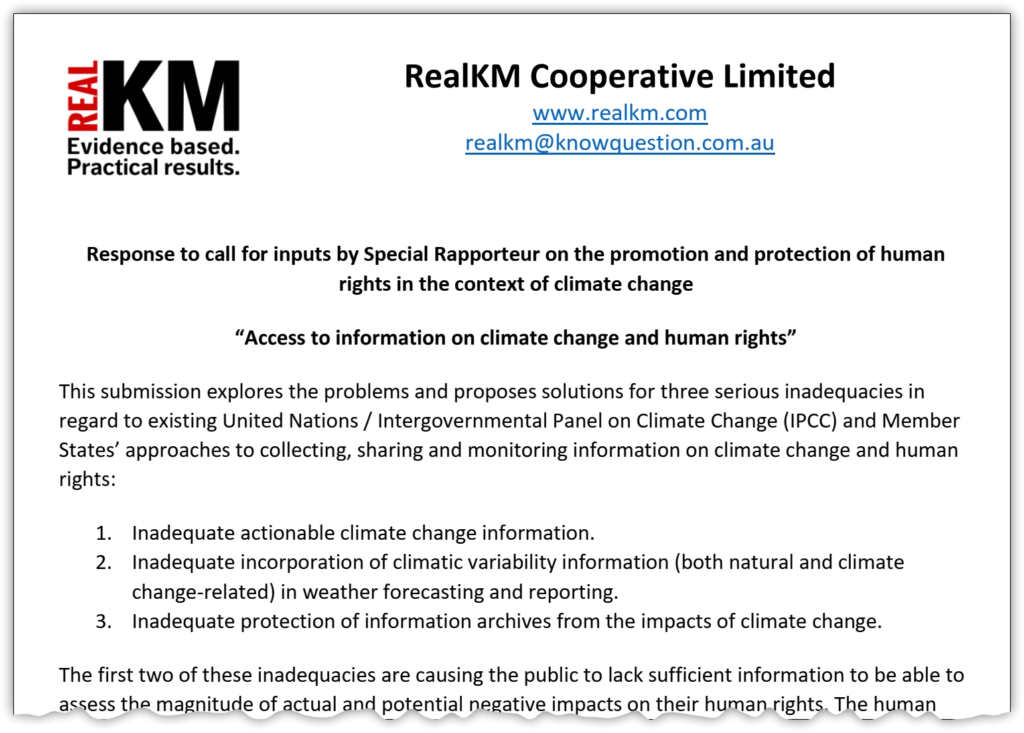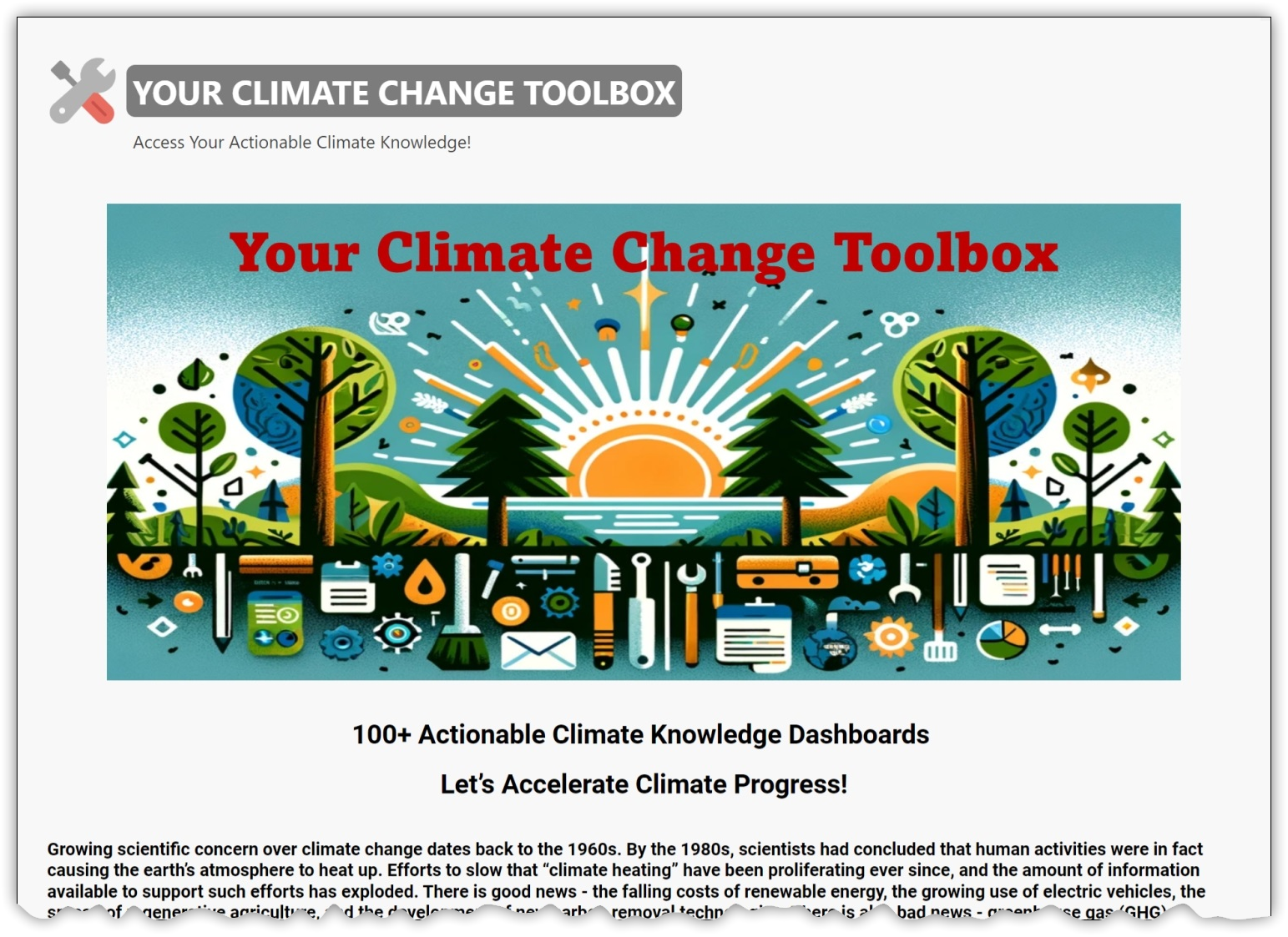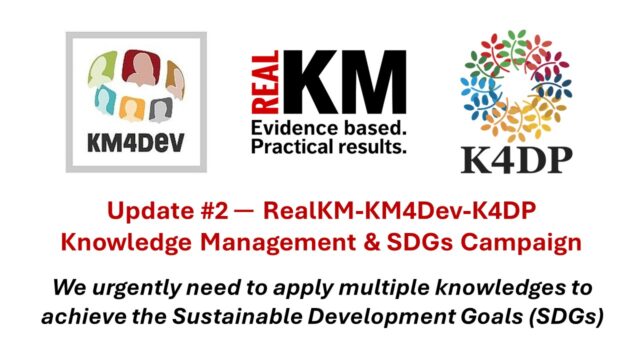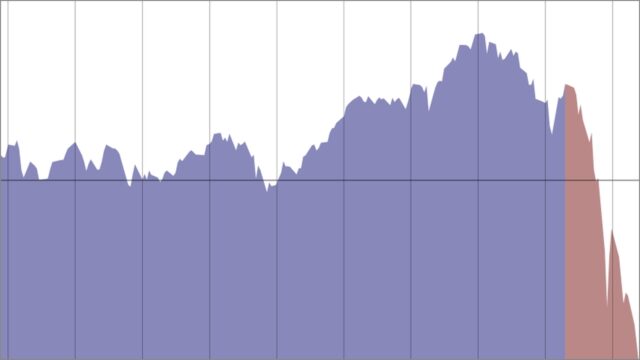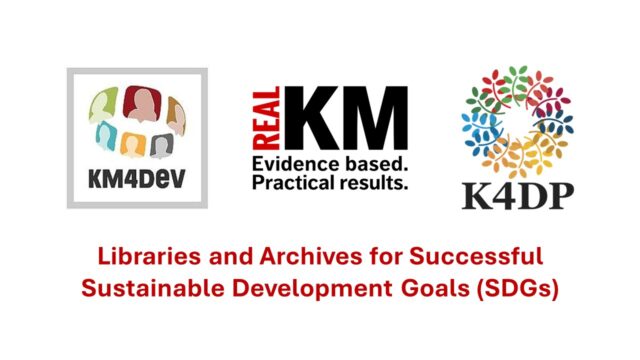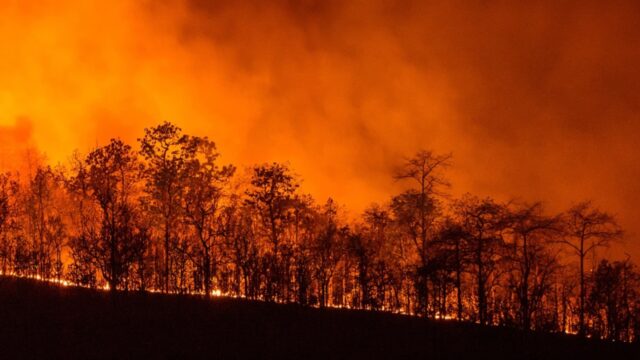
Advancing climate change knowledge management
This article is part of a series on climate knowledge.
It is 30 years ago this year that the United Nations Framework Convention on Climate Change (UNFCCC) came into force1 with the objective of stabilizing greenhouse gas concentrations at a level that would prevent dangerous anthropogenic (human induced) interference with the climate system.
However, last year’s Intergovernmental Panel on Climate Change (IPCC) AR6 report2 states that:
Widespread and rapid changes in the atmosphere, ocean, cryosphere and biosphere have occurred. Human-caused climate change is already affecting many weather and climate extremes in every region across the globe. This has led to widespread adverse impacts and related losses and damages to nature and people (high confidence).
For example, not only have NASA, the European Union’s Copernicus Climate Change Service, and the United States National Oceanic and Atmospheric Administration (NOAA) found that was 2023 the hottest year in recorded history3, but new research finds that it was also the Northern Hemisphere’s hottest summer in the past 2,000 years4, and 2024 is on track to be even hotter5.
Not delivering on the objective of the UNFCCC represents a failure of UN-led global action paralleling the current lack of progress towards the UN Sustainable Development Goals (SDGs)6, and also a failure of the actions of UN Member States.
As climate change impacts continue to grow, there’s increasing recognition of the role of information and knowledge in both the inadequate climate action to date, and in potentially turning things around. Two new initiatives in this regard are presented below: the UN Special Rapporteur call for for inputs in regard to access to information on climate change and human rights, and the release of ‘Your Climate Change Toolbox’.
UN Special Rapporteur call for for inputs in regard to access to information on climate change and human rights
The UN Special Rapporteur on the promotion and protection of human rights in the context of climate change called for inputs7 by 2 June 2024 to inform their thematic report to the United Nations General Assembly 79th session.
I made the submission below, drawing on and referencing the articles on climate change knowledge management that I and others have previously written in RealKM Magazine. The recommendations I make in the submission are that the United Nations and Member States:
- facilitate further research, investigation, and development in regard to the use of knowledge graphs linked to generative artificial intelligence (AI), to help provide the public with adequate information and knowledge for them to be able to assess the magnitude of actual and potential negative impacts on their human rights;
- take responsibility for complexity in climate action and the challenges it creates for actionable climate knowledge;
- facilitate further research and investigation in regard to inadequate incorporation of climatic variability information (both natural and climate change-related) in weather forecasting and reporting, with the aim of reducing current and preventing future human rights impacts; and
- coordinate the development and implementation of a comprehensive climate change impact protection strategy for all information archives globally, the development of which should include further research and consultation, with the aim of preventing future human rights impacts.
An example of the use of knowledge graphs linked to generative AI for climate knowledge management is Climate Policy Radar8, which has received support from Google’s first generative AI accelerator9. Climate Policy Radar uses an open digital database and knowledge graph for climate law and policy with a generative AI-enabled search interface.
‘Your Climate Change Toolbox’
The first section of my submission above references Mark Trexler, who has previously served as a lead author for the IPCC, to alert to the need for actionable climate knowledge that is meaningful to people and their diverse situations and can be practically applied. Trexler has worked to address this need through The Climate Web initiative.
However, as I alert in my submission, while The Climate Web has had a beneficial impact, the task of turning the vast and ever-growing volume of climate information and knowledge into actionable knowledge that is relevant and meaningful in people’s everyday lives remains a significant challenge. In response, as summarized above, I have recommended that two emerging linked tools have the potential to at long last substantially address this problem: knowledge graphs linked to generative AI.
In the past week though, Mark Trexler has announced a new initiative based on The Climate Web. Titled ‘Your Climate Change Toolbox’, it includes more than 100 dashboards which aim to get the “right” information to the “right” decision-makers at the “right” time. It is linked below, and the toolbox table-of-contents from the website home page is also available as a PDF flyer10.
But, while the toolbox is a significant step forward in making climate information and knowledge more easily findable, time and effort is still needed to navigate the toolbox and its dashboards, even though this is likely to be a lot less than previously. So, I still consider that knowledge graphs linked to generative AI, as I recommend in the submission above, offer the best hope of very quickly providing directly relevant information to people on the basis of a prompt or two. However, the toolbox can potentially provide an excellent basis for such a knowledge graph.
Header image source: John Towner on Unsplash.
References:
- UN Climate Change. (n.d.). What is the United Nations Framework Convention on Climate Change? https://unfccc.int/process-and-meetings/what-is-the-united-nations-framework-convention-on-climate-change. ↩
- IPCC. (2023). Summary for Policymakers. In: Climate Change 2023: Synthesis Report. Contribution of Working Groups I, II and III to the Sixth Assessment Report of the Intergovernmental Panel on Climate Change (Core Writing Team, H. Lee and J. Romero (eds.)). IPCC, Geneva, Switzerland, pp. 1-34. https://www.ipcc.ch/report/ar6/syr/downloads/report/IPCC_AR6_SYR_SPM.pdf. ↩
- Sullivan, W. (2024, May 15). Last Year, the Northern Hemisphere Had Its Hottest Summer in 2,000 Years. Smithsonian Magazine. https://www.smithsonianmag.com/smart-news/last-year-the-northern-hemisphere-had-its-hottest-summer-in-2000-years-180984365/. ↩
- Esper, J., Torbenson, M., & Büntgen, U. (2024). 2023 summer warmth unparalleled over the past 2,000 years. Nature, https://doi.org/10.1038/s41586-024-07512-y. ↩
- Logan, T., & Saunders, T. (2024, June 5). As 12 months of record heat stack up, scientists unpack the impacts around the globe. ABC News. https://www.abc.net.au/news/2024-06-05/world-the-hottest-on-record-12-months-in-a-row/103904150. ↩
- UN. (2023). The Sustainable Development Goals Report 2023: Special edition. https://unstats.un.org/sdgs/report/2023/The-Sustainable-Development-Goals-Report- 2023.pdf. ↩
- UN Human Rights Special Procedures (n.d.). Call for inputs, Special Rapporteur on the promotion and protection of human rights in the context of climate change, “Access to information on climate change and human rights”. https://www.ohchr.org/en/calls-for-input/2024/call-inputs-access-information-climate-change-and-human-rights-deadline-has. ↩
- Climate Policy Radar CIC. (2024). Climate Policy Radar. https://climatepolicyradar.org/. ↩
- Lewin, A. (2024, March 28). 21 nonprofits join our first generative AI accelerator. The Keyword. https://blog.google/outreach-initiatives/google-org/google-generative-ai-acceleratornonprofits/. ↩
- The Climatographers. (2024). Your Climate Change Toolbox. https://bra.in/9j8mbk. ↩

